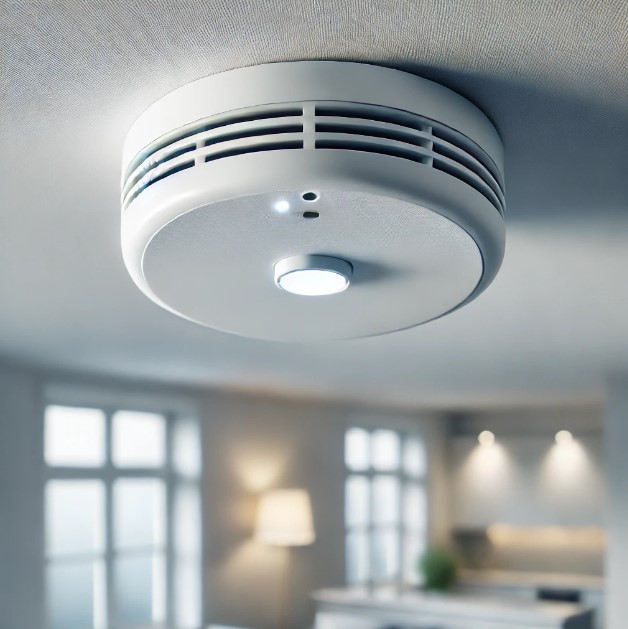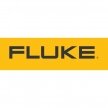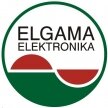-
Product Catalog
- Security and Surveillance Systems
- Automatic Circuit Breakers for Direct Current (DC) Circuits with Integrated Overload, Short-Circuit, and Voltage Stabilization Protection Functions
- Lighting with the help of electrical energy
- Automation and Control Systems
- Sealing profiles | rubber | gaskets | strips
- Inflatable Liquid Storage Tanks | Reservoirs | Bladders
- Inflatable rubber plugs for sealing high-pressure plumbing pipes
- Electrical distribution and installation
- Solar Energy Generation and Management Equipment
- HVAC control solutions for heating and ventilation.
- Special products and accessories
- Other products
- Safety tools
- Quality used products
Autonomous smoke sensors | detectors
-
Read more

Smoke detectors | alarms are vital safety devices designed for the early detection of smoke and fire, helping to prevent potential disasters in both residential and commercial spaces. These devices ensure that any sign of smoke or fire is immediately noticed, allowing for quick action to save lives and protect property.
Key Features:
Smoke Detection: Smoke detectors work by detecting smoke, which may indicate a fire. They use different technologies—ionization or optical sensors—to ensure a quick response to various types of fire sources.
Alarm: When smoke is detected, the device emits an audible or visual signal. Most commonly, the audible signals exceed 85 decibels, ensuring the fire alert is heard even in distant rooms or areas.
Wireless or Wired Connectivity: Modern smoke detectors can be wireless, allowing easy integration with other home safety devices, or wired, ensuring stable power supply and continuous operation.
Standalone Sensors: Standalone smoke detectors operate independently of a central control system—they have their own power source, usually a battery, and can work even during power outages.
Smoke Detection Technologies:Ionization Sensors: These sensors operate using an ionization chamber. They quickly respond to small smoke particles that arise during intense fires. This is especially useful for detecting fast-spreading, high-temperature fires, such as those involving liquids or materials.
Optical (Photoelectric) Sensors: This type of sensor reacts to larger smoke particles, typically produced by slow-burning materials like wood or fabric. They are more sensitive to smoke from small fires and are ideal for detecting gradually accumulating smoke.
Advantages:Early Warning: Smoke detectors provide valuable time for evacuation or quick intervention, reducing potential damage.
Easy Maintenance: Most modern detectors have battery warning systems that signal when batteries need to be replaced.
Automatic Testing: Some models include an automatic testing feature to ensure the detector is always functioning properly.
Easy Installation: Detectors are easily mounted on ceilings or walls, making them suitable for any room.
Technical Specifications:Power Source: Batteries (usually 9V or AA type), or wired power with a backup battery mode.
Sound Alarm: Over 85 dB, designed to clearly alert of danger.
Detection Range: On average 30–50 square meters depending on the type of sensor.
Certifications: Complies with EU safety standards (CE mark, EN14604).
Applications:Residential Areas: Smoke detectors are an essential safety feature in apartments, houses, and multi-family dwellings. It is recommended to install them in bedrooms, living rooms, and hallways.
Commercial Spaces: Used in offices, shopping centers, hotels, and other places where employee and visitor safety must be ensured.
Industrial Premises: Detectors are also used in factories, warehouses where there is a high fire risk due to production processes or stored materials.
Advantages:Reliability: Smoke detectors are a reliable solution to avoid serious fire consequences.
Independence: Standalone sensors operate without additional communication systems or centralized control.
Flexibility: They can be installed in any room, whether it’s a residential or commercial environment.
Disadvantages:Battery Replacement: Standalone detectors require periodic battery replacement to ensure uninterrupted operation.
False Alarms: Improperly maintained or dusty sensors may occasionally trigger without an actual threat.
Smoke detectors | alarms are a crucial safety measure, ensuring effective fire prevention and helping to protect residential, commercial, and industrial spaces from potential fire hazards.No items found.
US IN SOCIAL NETWORKS
























